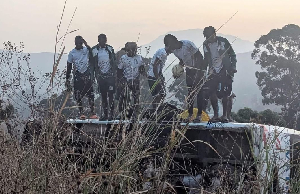But payment of ransom is completely out of the question.
Three weeks after the abduction of three missionaries in Tchere, near Maroua in the Far-North Region, searchlights seem to have been taken away from them. But that is only a figment! On the contrary, the government of Cameroon has taken measures to provide more and vital security for the hostage-prone areas of the Far-North Region.
The government’s concern is about providing security. But it is not insensitive to any initiatives being taken by non-government actors to ensure the immediate release of the two Italian Reverend Fathers Gianantonio Alligri and Gianpaulo Marta as well as the Canadian Reverend Sister Gilberte Boussière.
But the government of Cameroon is firmly opposed to meeting these aims through the payment of ransoms. In his end-of-year message to the nation last December 31, 2013, the Head of State did not only specifically condemn the taking of hostages but also indirectly stated Cameroon’s refusal when he condemned the fact that these abductions were made with the aim of receiving ransoms. On that occasion, he also promised that Cameroon will continue to intensify the fight. That is what the government is doing. And in several forms.
It has notably been working with other countries of the Central African sub-region and its immediate neighbour, Nigeria to work out winning strategies in properly addressing the scourge. To this end, senior Cameroonian intelligence officers have been liasing with colleagues, attending meetings as well as comparing and contrasting notes.
At a very recent such meetings held in Abuja on March 5,2014, attended by intelligence chiefs from Benin, Chad, France, Niger, Nigeria and Cameroon , the participants tried to press Cameroon into accepting the right of hot pursuit into its territory in the fight against the Boko Haram sect, but the request was not accepted because of internal policy issue considerations. But that is far from imagining that Cameroon is lax in its support to Nigeria in the tackling of the Boko Haram insurgency.
Cameroon’s refusal to pay ransoms is predicated on a number of international instruments to which it is signatory, notably the Security Council Resolution 2133 (2014) of January 27, 2014 which reiterated all previous resolutions condemning the payment of ransoms. Moreover, Cameroon took an active part at a meeting of the Global Counterterrorism Forum held in Algiers, Algeria last January and which reaffirmed the determination of participating State to refuse any form of ransom payments.
Algiers also hosted a month later, an experts meeting convened by the African Union and which ended up with the same condemnation. So in making good its international commitments, Cameroon is also sending a strong message to the international community that they can count on it to ensure that no franc is paid in exchange for the liberation of the hostages taken at Tchere last April 4, 2014.
As part of the effort to tackle the hostage-taking incidents more effectively and following the abduction of Father George Vandenbeusch last year, the government of Cameroon requested that expatriates working in the hostage-prone areas of the Far-North to relocate to Maroua. That government decision has not met the required success, leading the Governor of the Region, in one case to forcefully remove a missionary from a danger area.
Actualités of Monday, 28 April 2014
Source: Cameroon Tribune












